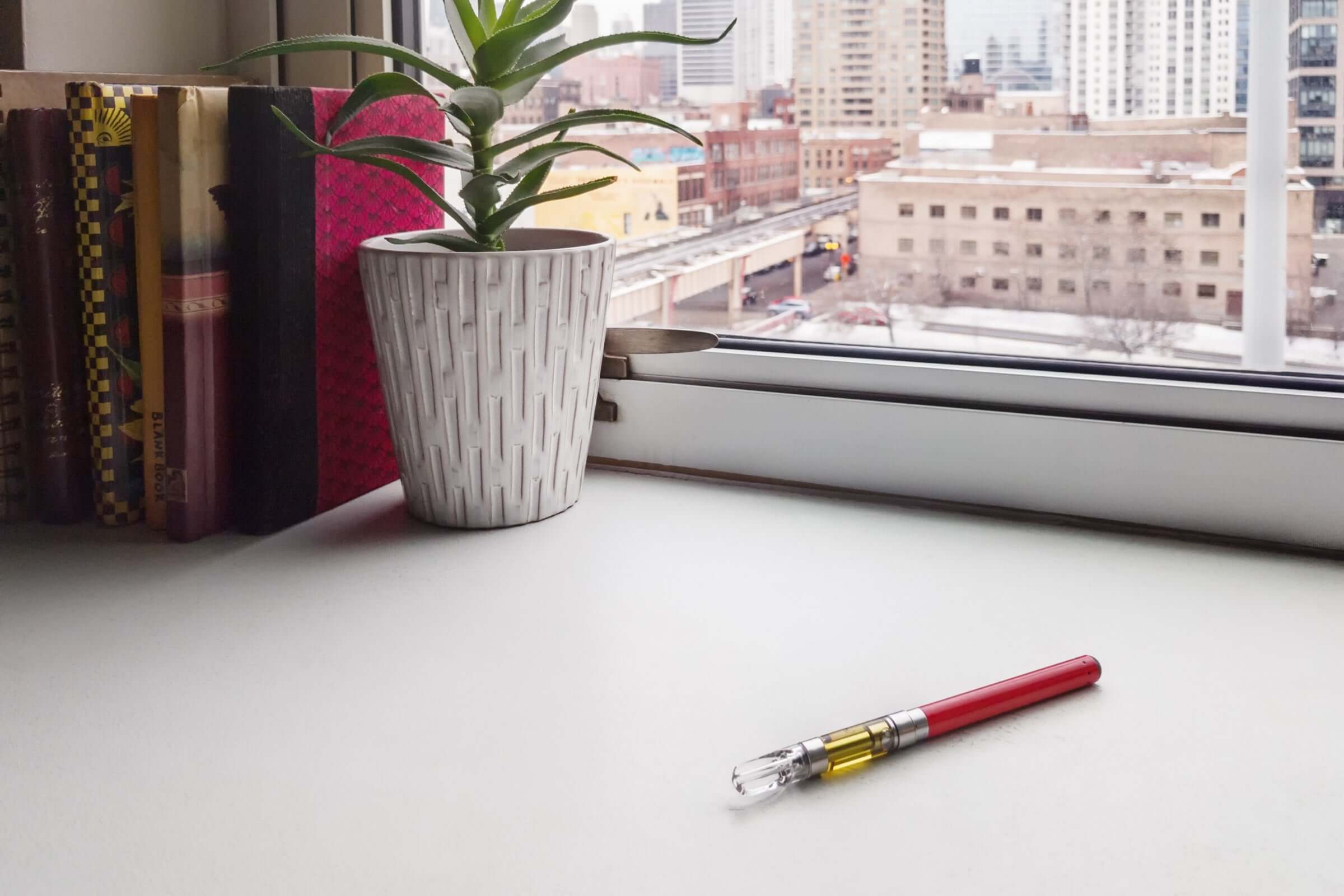How Long Do THC Carts Last Before They Expire?

THC (tetrahydrocannabinol) cartridges, commonly known as THC carts, are a popular method for consuming cannabis, particularly among those who prefer vaping over smoking. These cartridges contain concentrated THC oil, which is vaporized and inhaled using a vape pen or similar device. While THC carts offer a convenient and discreet way to consume CBD products, they, like all products, have a shelf life.
Understanding how long THC carts last before they expire is crucial for users to ensure both safety and effectiveness. In this blog, we'll explore the factors that influence the shelf life of THC carts, discuss signs of expiration, and examine case studies that provide real-world insights into their longevity.
Factors Influencing the Shelf Life of THC Carts
Several factors affect the shelf life of THC carts, including the quality of the oil, storage conditions, and the materials used in the cartridge. Let's break down each of these factors:
1. Quality of the THC Oil
The purity and quality of the THC oil used in the cartridge are significant determinants of how long it will last. High-quality THC oil that is well-refined and free from impurities is less likely to degrade quickly. On the other hand, oil that contains contaminants or has not been properly distilled may break down faster, leading to a shorter shelf life.
THC is a sensitive compound that can degrade over time, especially when exposed to heat, light, and air. As THC degrades, it converts into CBN (cannabinol), a less potent cannabinoid. While CBN has its own effects, it is not as sought after as THC, meaning that the effectiveness of the cartridge decreases as more THC converts to CBN.
2. Storage Conditions
How and where a THC cart is stored plays a critical role in determining its longevity. Exposure to air, light, and heat are the primary enemies of THC oil. Proper storage can significantly extend the shelf life of a THC cart, while poor storage conditions can lead to premature degradation.
3. Air Exposure
Oxygen can cause the oxidation of THC, leading to the formation of CBN and other byproducts that reduce the oil's potency. Ensuring that the cartridge is sealed tightly when not in use can help minimize air exposure.
- Light Exposure: UV light can break down cannabinoids, including THC, over time. Storing THC carts in a dark place, away from direct sunlight, is essential to preserving their potency.
- Temperature: THC oil is sensitive to temperature fluctuations. Storing carts in a cool, stable environment is ideal. High temperatures can cause the oil to degrade faster, while extremely low temperatures can cause the oil to thicken, potentially clogging the cartridge.
4. Materials Used in the Cartridge
The materials used in the construction of the cartridge can also impact its shelf life. Cartridges made from high-quality materials, such as glass or stainless steel, are less likely to interact with the THC oil and cause degradation. In contrast, cartridges made from low-quality plastic or metal may leach chemicals into the oil, potentially accelerating its degradation and affecting its taste and safety.
Signs That a THC Cart Has Expired
Identifying whether a THC cart has expired is not always straightforward, as there is no exact expiration date. However, there are several signs that users can look out for to determine if their cart is past its prime:
1. Change in Color
One of the most noticeable signs of an expired THC cart is a change in the color of the oil. Fresh THC oil typically has a golden or amber hue. If the oil has darkened significantly or turned brown, it may be a sign that the THC has degraded, and the cart is no longer effective.
2. Change in Taste
Expired THC oil often has a noticeably different taste compared to fresh oil. If the oil tastes bitter, burnt, or off in any way, it may indicate that it has degraded and is no longer safe or effective to use.
3. Change in Consistency
The consistency of the oil can also change over time. If the oil has become thick and sticky or has separated into different layers, it may be a sign that the cart has expired. This can also lead to clogs in the cartridge, making it difficult or impossible to vape.
4. Loss of Potency
As THC degrades into CBN and other compounds, the potency of the oil decreases. If you find that you need to vape significantly more to achieve the same effects, it could be a sign that your THC cart has expired.
The Impact of Storage Conditions on THC Cart Longevity
A study conducted by a cannabis research group in California examined the impact of storage conditions on the shelf life of THC carts. The study involved storing identical THC carts in three different environments: a cool, dark place; a room with fluctuating temperatures; and a location exposed to direct sunlight.
After six months, the carts stored in the cool, dark place showed minimal degradation, with only a slight decrease in THC content and no significant changes in color or taste. In contrast, the carts stored in fluctuating temperatures showed a noticeable decrease in potency, and the oil had darkened slightly. The carts exposed to direct sunlight showed the most significant degradation, with a substantial loss of potency, a darkened oil color, and a bitter taste.
This study underscores the importance of proper storage conditions in extending the shelf life of THC carts. It suggests that, with optimal storage, THC carts can remain effective for at least six months, if not longer.
The Role of Cartridge Materials in THC Oil Degradation
Another study explored the impact of cartridge materials on the degradation of THC oil. Researchers compared carts made from glass and stainless steel with those made from plastic and low-quality metal alloys. The carts were stored under identical conditions for a period of 12 months.
The results showed that the carts made from glass and stainless steel had significantly less degradation in both THC content and oil color compared to the plastic and low-quality metal carts. The latter showed signs of chemical leaching, which not only accelerated the degradation of the THC oil but also introduced potentially harmful substances into the vapor.
This study highlights the importance of choosing high-quality cartridges to ensure the longevity and safety of THC carts. It suggests that carts made from superior materials can last up to a year or more when stored properly, while those made from lower-quality materials may expire much sooner.
Consumer Experiences with THC Cart Shelf Life
In addition to scientific studies, consumer experiences also provide valuable insights into the shelf life of THC carts. A survey conducted by a cannabis consumer advocacy group collected data from over 500 regular THC cart users. The survey asked users to report on the longevity of their carts, including any signs of expiration they noticed.
The survey results indicated a wide range of experiences, with some users reporting that their carts remained effective for up to a year, while others noticed a decline in quality after just a few months. The most common factors cited for early expiration were improper storage, such as leaving carts in a hot car or exposing them to direct sunlight. Users who stored their carts in cool, dark places generally reported longer shelf lives.
These findings align with the scientific studies discussed earlier, reinforcing the idea that storage conditions play a critical role in determining the shelf life of THC carts. The survey also highlighted the importance of consumer education, as many users were unaware of the best practices for storing their carts.
Best Practices for Extending the Shelf Life of THC Carts
Based on the information and case studies discussed, here are some best practices for extending the shelf life of your THC carts:
1. Store in a Cool, Dark Place: To minimize degradation, store your THC carts in a cool, dark place away from direct sunlight and heat sources. A drawer, cupboard, or a dedicated storage case can work well.
2. Keep Carts Upright: Storing carts upright can help prevent leaks and ensure that the oil stays at the bottom of the cartridge, reducing the risk of clogs.
3. Seal Tightly: Make sure the cartridge is sealed tightly when not in use to minimize air exposure. Some users also recommend storing carts in an airtight container or bag to further protect them from oxygen.
4. Choose High-Quality Cartridges: Opt for carts made from high-quality materials, such as glass or stainless steel, to reduce the risk of chemical leaching and degradation.
5. Avoid Frequent Temperature Changes: Try to keep the carts in an environment with a stable temperature. Avoid leaving them in places where temperatures fluctuate frequently, such as a car.
Our verdict?
The shelf life of THC carts is influenced by several factors, including the quality of the THC oil, storage conditions, and the materials used in the cartridge. While there is no exact expiration date for THC carts, signs such as a change in color, taste, consistency, and potency can indicate that a cart has expired.
Case studies and consumer experiences suggest that with proper storage and the use of high-quality materials, THC carts can remain effective for up to a year or more. However, poor storage conditions and low-quality cartridges can lead to premature expiration.
By following best practices for storage and choosing high-quality products, users can maximize the longevity of their THC carts and ensure a safe and enjoyable vaping experience.



